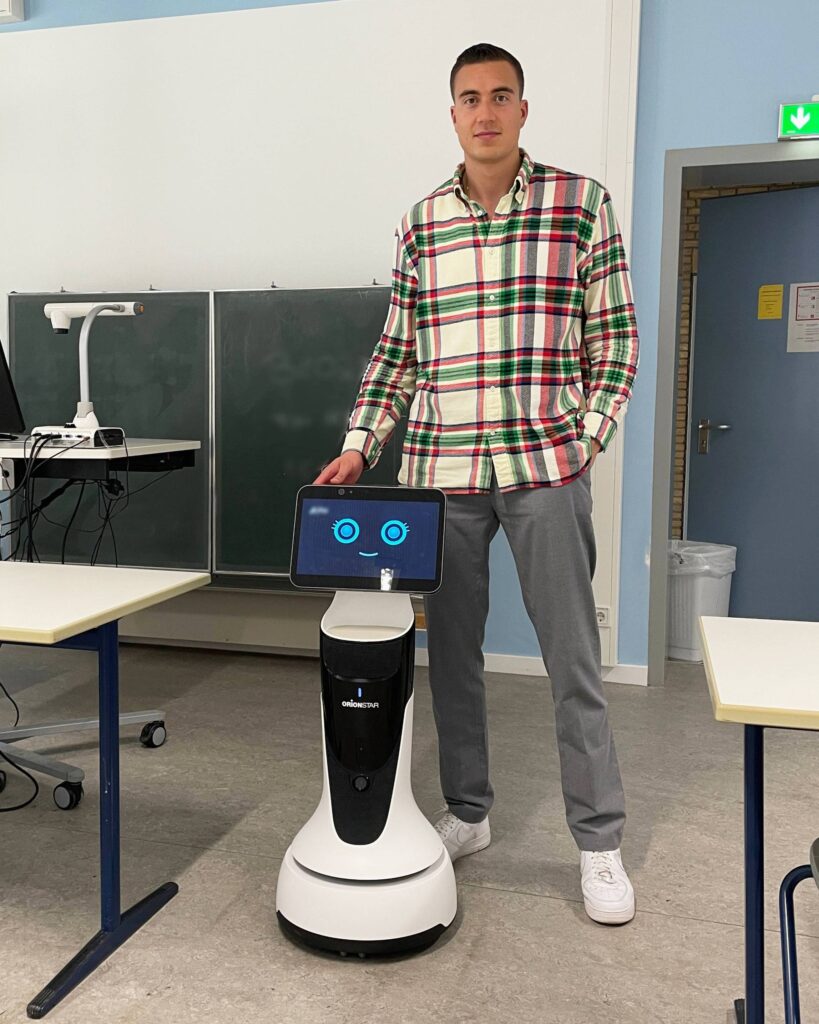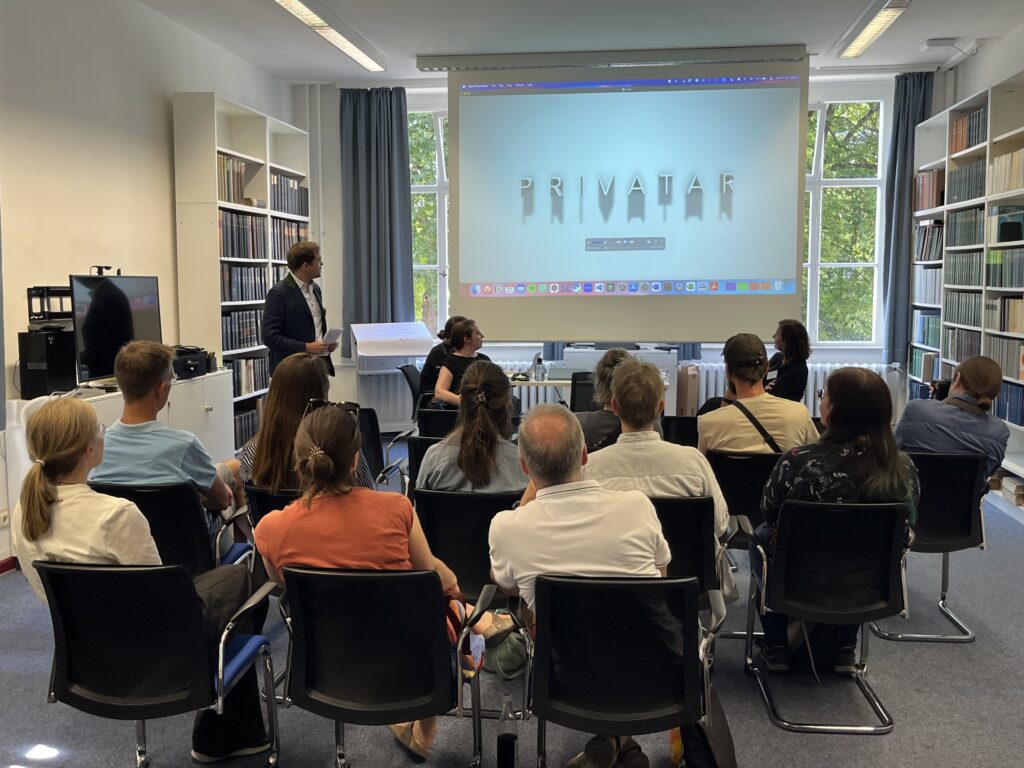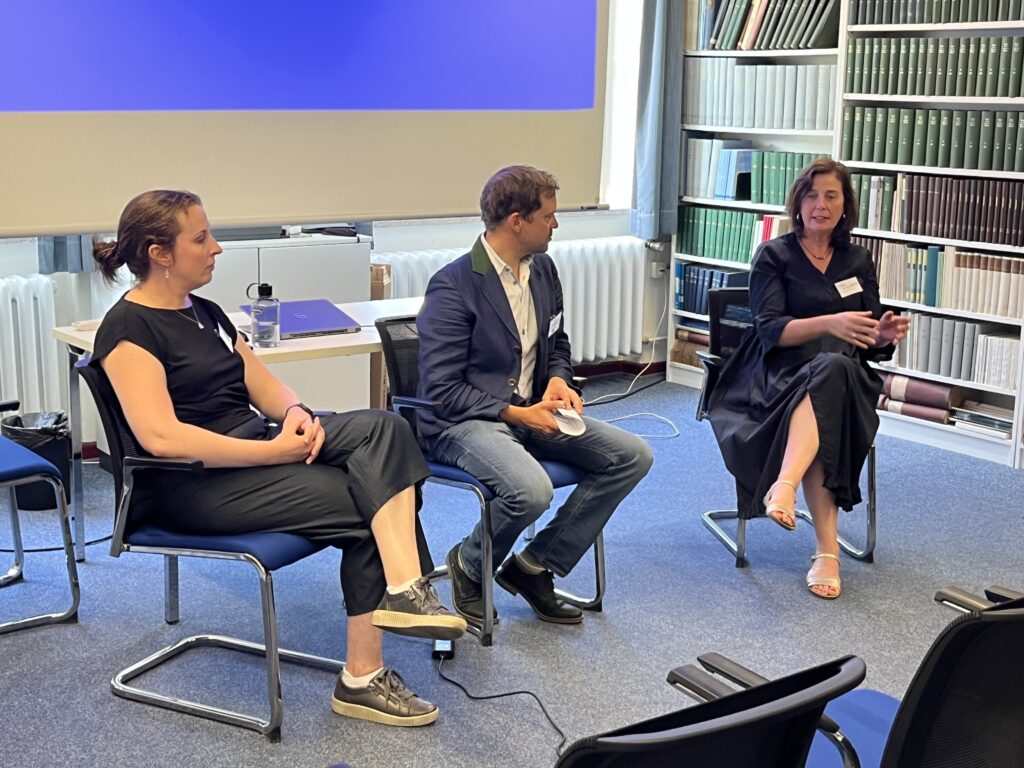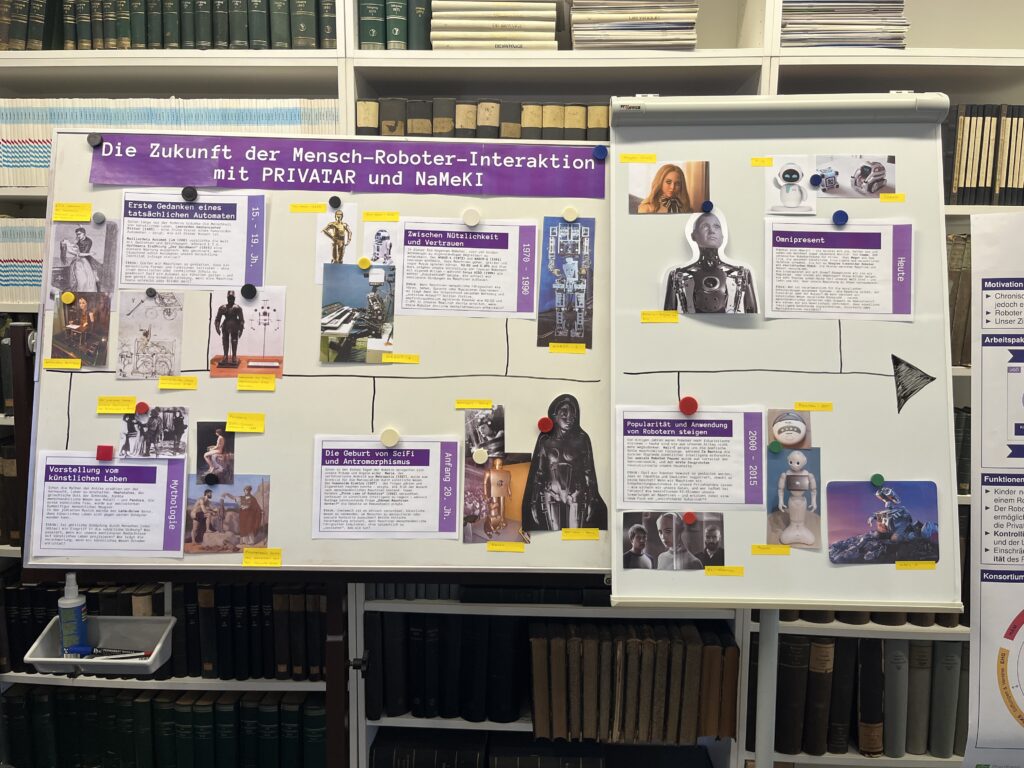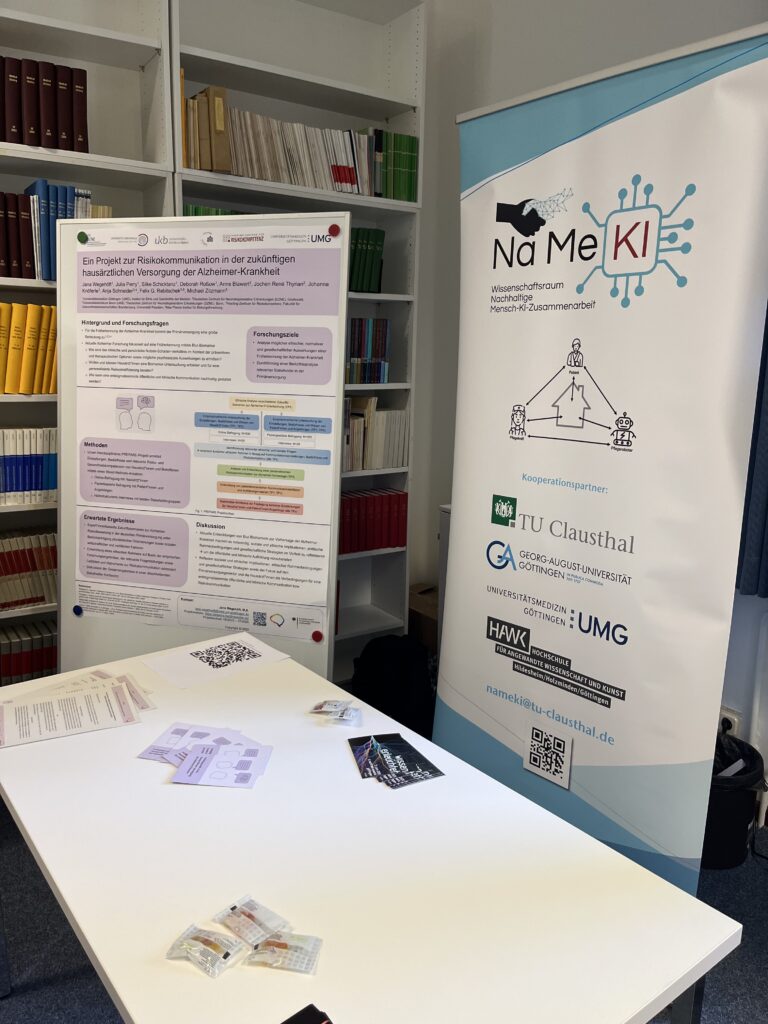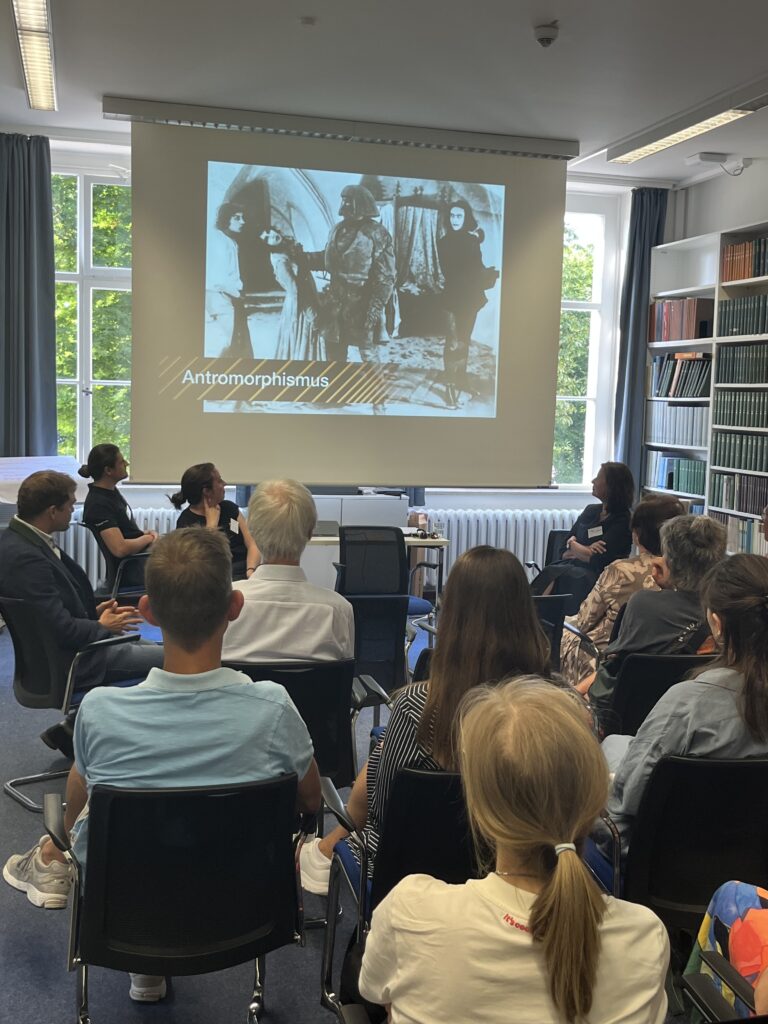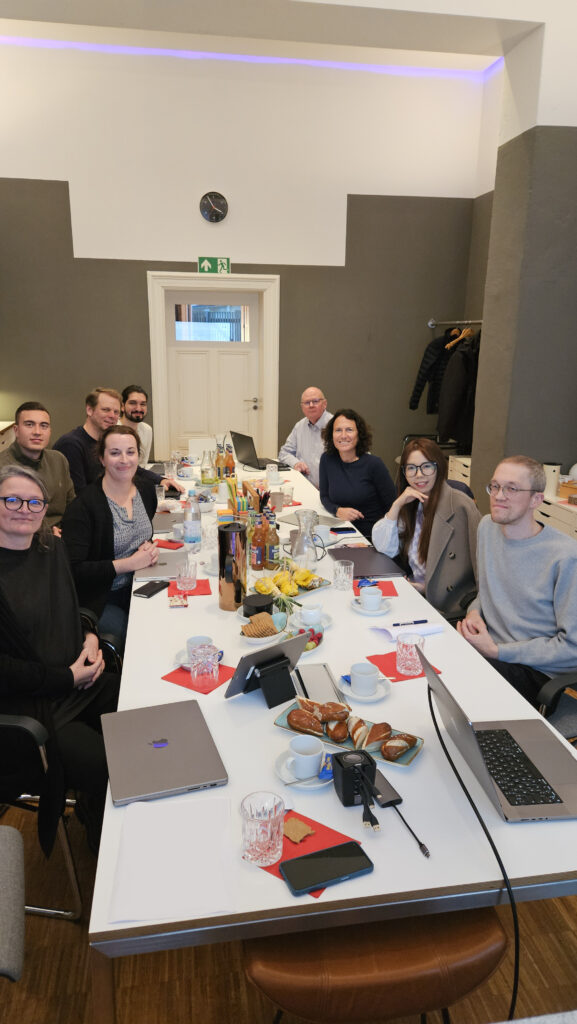
Am 10. November 2025 fand das PRIVATAR-Konsortialtreffen in Kassel statt. Alle Projektpartner kamen zusammen, um aktuelle Entwicklungen zu präsentieren, Erfahrungen aus bisherigen Tests auszutauschen und die nächsten Schritte für die kommenden Monate zu planen.
Im Mittelpunkt des Treffens standen die Fortschritte bei der Gestaltung der Benutzeroberflächen, der Weiterentwicklung der Roboternavigation sowie neue Konzepte zum Schutz der Privatsphäre im schulischen Alltag. Darüber hinaus wurden Einblicke in laufende und geplante Studien gegeben, in denen untersucht wird, wie Kinder, Lehrkräfte und Eltern den Einsatz von Telepräsenzsystemen im Unterricht erleben und welche technischen oder pädagogischen Verbesserungen sich daraus ableiten lassen.
Ein weiterer Schwerpunkt lag auf der Abstimmung zukünftiger Forschungsrichtungen. Diskutiert wurden unter anderem Ideen für neue Ansätze, wie Telepräsenzsysteme in Bildungskontexten noch datensparsamer, sicherer und nutzerfreundlicher gestaltet werden können.
Das Treffen bot allen Beteiligten eine wertvolle Gelegenheit zum Austausch und zur gemeinsamen Weiterentwicklung der Projektziele. Wir danken allen Partnern für die konstruktive Zusammenarbeit und das anhaltende Engagement für den Erfolg des Projekts.
